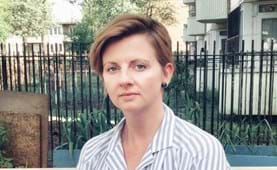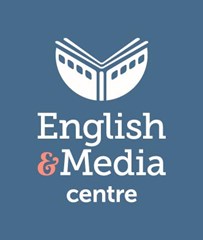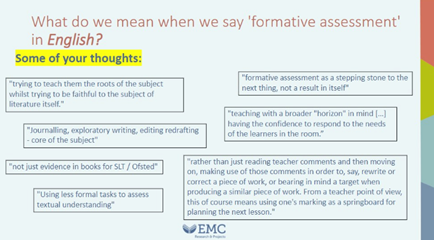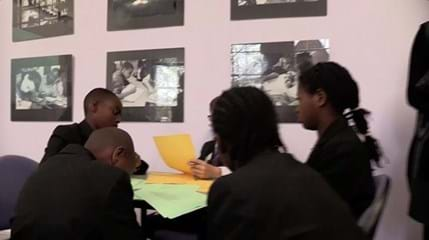The long awaited Curriculum and Assessment Review Final Report was published last week but what do Media Studies teachers need to know?
Media Studies is not a national curriculum subject so the review doesn’t address the content of media courses. But it does signpost some shifts in thinking about curriculum design and knowledge that suggest positive changes may be possible and may be afoot. At this stage the report merely offers recommendations to the government and we look forward, as an organisation with a wide network of experienced media educators and subject expertise, to supporting the government to implement changes relevant to our subject.
Whilst we would have welcomed more radical reform, especially when it comes to forms of assessment (particularly at GCSE), what has been published is still pleasing and after the interim response, I think everyone had been primed not to expect radical reform, nor indeed would many teachers of our subject welcome excessive disruption and additional workload. But there were a lot of sensible points that suggest a ‘direction of travel’ that will be music to media teachers’ ears.
Media Literacy and critical thinking
The review is very clear that the national curriculum needs to respond to social and technological change and that media literacy is an essential life skill that young people and their parents and carers believe should be taught in schools. Media literacy has its own section and is mentioned 24 times throughout the report. We hope that the recommendations about media literacy are taken seriously (the government's response to the same recommendations by the House of Lords Media Literacy Inquiry could be described as dismissive at best).
It suggests that media literacy and critical thinking skills should be taught across the secondary curriculum and in primary school in ways that have a positive impact on young people's lives. We hope this can go beyond spotting fake news to considering how media literacy learning might support the creative and critical skills of young people
Breadth over depth
The report states that in some subjects, ‘the construction and balance of content […] may impede mastery’ and where there has been an increased breadth of content, pupils are prevented from ‘developing an appropriate depth of understanding, hindering progress and undermining standards’ (p.9). This is certainly true of the Media Studies GCSE and A level curriculum since 2017. The prescribed 9 forms of media at GCSE and A level and the compulsory theorists at A level mean that most teachers are focused on the mammoth task of covering everything in enough detail so that students are prepared for the exam. A reduction of media forms (to 5 or 6 for example) would allow teachers to spend more time exploring topics in depth, bringing in examples and stimuli from outside of the set texts that would deepen students’ understanding, support their ability to apply what they learn in Media Studies to their media consumption outside of school and improve their media literacy.
Teacher autonomy and flexibility
The review also places emphasis on the professional autonomy of teachers (p.50). It refers to teachers as ‘curriculum makers’ who should be able to ‘adapt how they teach the curriculum to reflect their students’ lives and experiences’.
This is likely to be a useful recommendation to refer to when arguing for a reduction in the amount of set text content in our subject. Many media teachers are frustrated by the lack of opportunity to choose texts for study and personalise the curriculum content to their students’ tastes and interests. The review also suggests learning about local communities (in History and Citizenship for example) helps connect pupils to the wider world – it seems that an option to study media that reflects or represents different areas of the UK might be possible as might be studying media made by media producers or content creators local to schools.
This focus on professional autonomy and teacher agency suggests there may be a shift in attitude away from heavily prescribed content. If this is the new direction of travel then any rewrite of the government subject content document must surely include reduction in the number of media forms and prescribed texts at GCSE and A level, giving teachers greater autonomy to ensure that students get to study, in depth, media texts and forms that are most relevant to their lives.
Post-16
The review makes several suggestions for improving and streamlining vocational learning for 16-19 year olds that include reducing the assessment burden in the existing T-levels and strengthening and incentivising connections with employers in relevant industries.
They also suggest introducing a revised version of the current vocational course offer called V levels that will “meet a range of ambitious quality criteria that ensure that they provide the knowledge and skills required for learners to successfully progress to related employment or further study at a higher level”. You can read more about the suggested structure and assessment on pages 148-150.
Media in English
Several changes to English at KS3 are recommended, including the importance of studying ‘multimodal and ephemeral texts’. This surely signposts the return of Media Studies to the KS3 English curriculum. For decades English teachers taught media units as part of KS3 English and EMC has the subject expertise and a vast bank of resources (related, for example, to TV drama, advertising, film and news) to support teachers in any future endeavours.
The report firmly calls for significant changes to the English Language GCSE, including the teaching of ‘multimodal and ephemeral texts’. In my evidence to the House of Lords earlier this year I was emphatic that this is the single most effective way to offer media education - at scale - to school age pupils. We know what happens in schools is often shaped by data collection, accountability procedures and inspection frameworks but the inclusion of media as a core GCSE element means it has to be taught and that schools will be accountable for the quality of media teaching. Media literacy outcomes might be hard to measure in schools but English Language GCSE outcomes are measurable and highly prioritised so the addition of media texts to this qualification is likely to have the biggest impact on media education and media literacy in schools.
For those of you working within or adjacent to English departments, now is the time to ready yourself to get involved with any KS3 English redesign. Media Studies teachers are uniquely placed to offer ideas and support to English colleagues in delivering media education through the English curriculum. We will wait to see what reforms to GCSE English Language look like but it seems likely that English teachers with Media Studies expertise will be of paramount importance in shaping its delivery.




